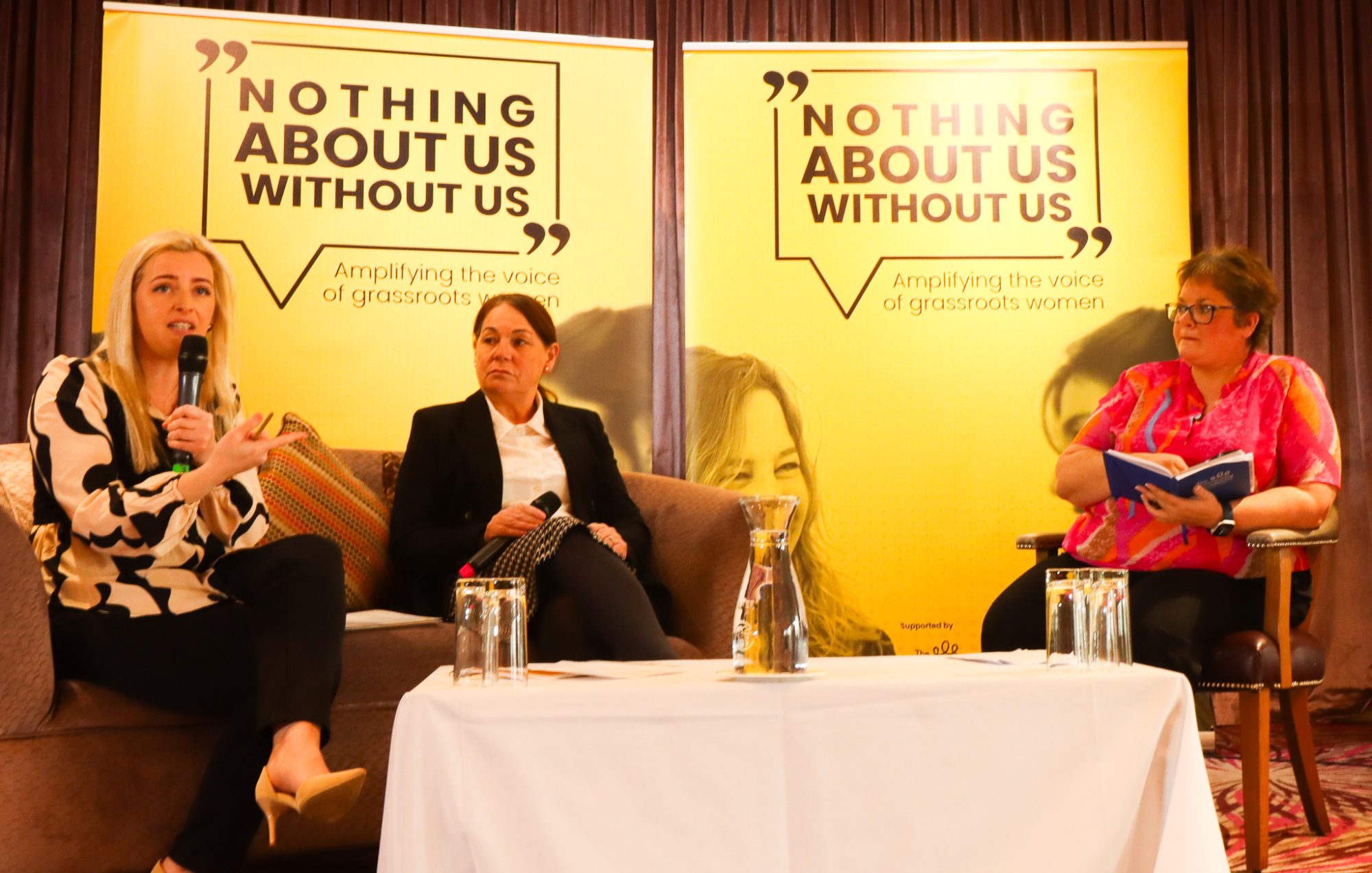
Foundation News
Women’s Health Strategy survey results launched by The Community Foundation for Northern Ireland
21 Oct 2024
The Community Foundation for Northern Ireland and their Nothing About Us Without Us (NAUWU) group have today launched the results of a survey into women’s health and a Women’s Health Strategy for Northern Ireland.
The survey, developed by the Community Foundation, received 74 responses from organisations and 1080 individuals from across Northern Ireland.
Some key findings from the survey include:
- 79.72% (861) of respondents reported that there were occasions when they felt they were not listened to by health professionals
- More than 30% of respondents stated that services they need were either inaccessible (20.74%) or very inaccessible (9.81%)
- The most common barriers to accessing healthcare were reported as ‘Availability of appointments (58.7%), ‘Ability to be referred by GP or other medical professional (44.54%)
- More than half of respondents (57.87%) reported feeling ‘Very comfortable’ or ‘Comfortable’ talking about women’s health issues in the workplace
- Two out of three respondents (67.59%) stated that a health condition or disability had impacted on their experience in the workplace
- When asked about priorities for a Women’s Health Strategy the most common priority was ‘Gynaecological conditions’ at 58.52% and ‘Menopause’ at 56.67%, ‘Womb, ovarian, cervical, vulval and vaginal cancers’ at 50.46%, ‘Fertility, pregnancy, pregnancy loss and post-natal support’ at 49.17%, and ‘Menstrual health, for example period pain, heavy menstrual bleeding’ at 47.13%.
Dawn Shackels, Director of programmes for the Community Foundation for Northern Ireland said: “We would like to thank everyone who took the time to complete this survey to help inform our campaign to achieve a Women’s Health Strategy for Northern Ireland.
“While we welcome the commitment by Minister for Health, Mike Nesbitt MLA, to bring forward an action plan for women’s health in Northern Ireland, the Community Foundation and Nothing About Us Without Us campaign believes that addressing the inequalities experienced by women in healthcare requires a cross departmental, Executive backed, resourced strategy to effectively respond to these clearly identified needs.
“The NAUWU campaign is calling for the creation of a fit for purpose, fully funded, outcomes focussed women’s health strategy for Northern Ireland. This strategy should be developed using a co-design model that ensures that women and their advocates lead on decisions related to women’s health and a women’s health strategy.”
Louise Coyle, Director at Northern Ireland Rural Women’s Network (NIRWN) and a member of the NAUWU panel, said:
“To date Northern Ireland and Wales are the only regions not to have a dedicated Women’s health Strategy in the UK. “There is a growing recognition of the need for a new approach towards addressing gender differences and positive health outcomes for women and girls. This survey further identifies the inequalities experienced by women in healthcare and the barriers they face in accessing the services they need, when they need them.
“By failing to develop a Northern Ireland Women’s Health Strategy, we are essentially failing to recognise the unique needs of 51% of our population.”

